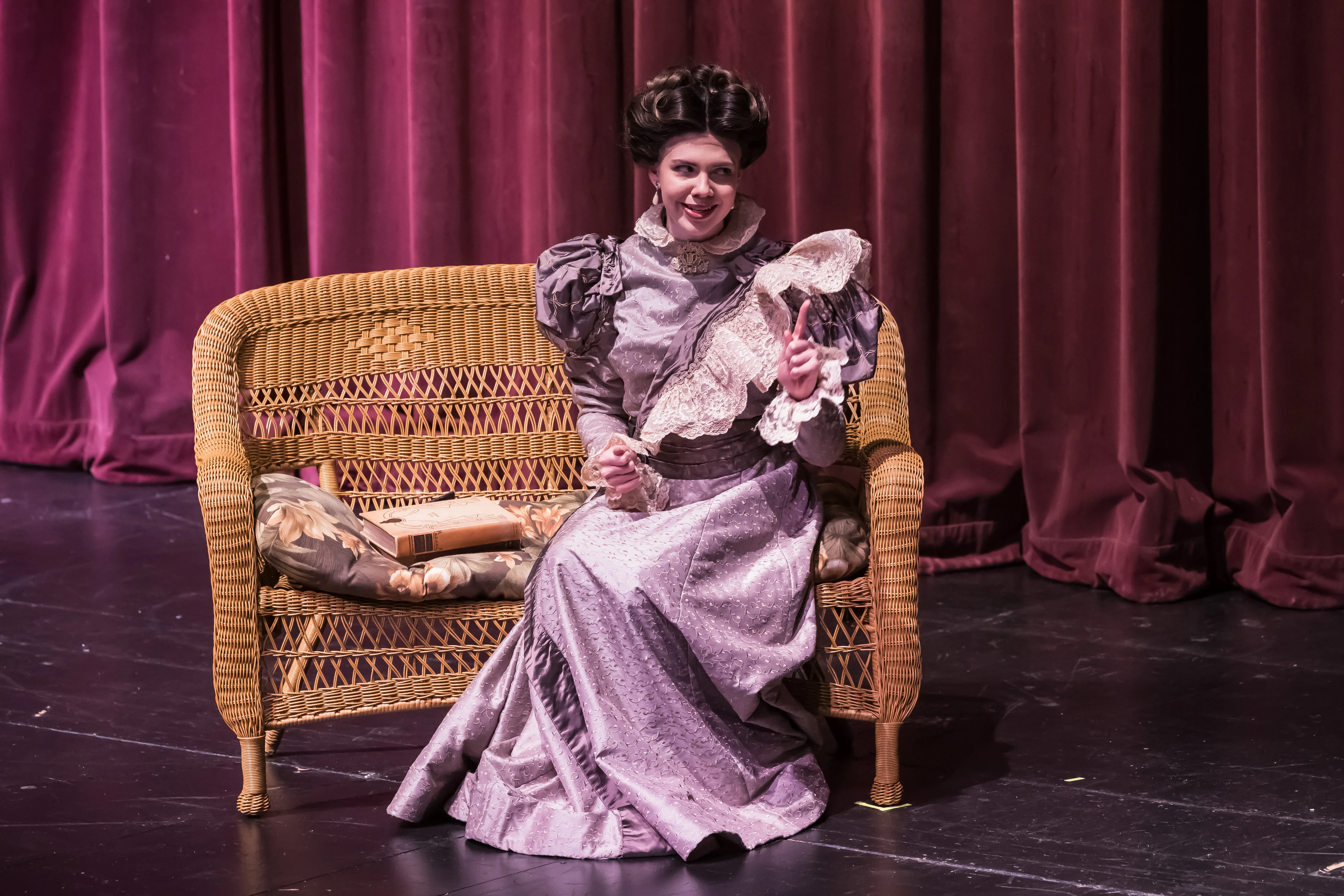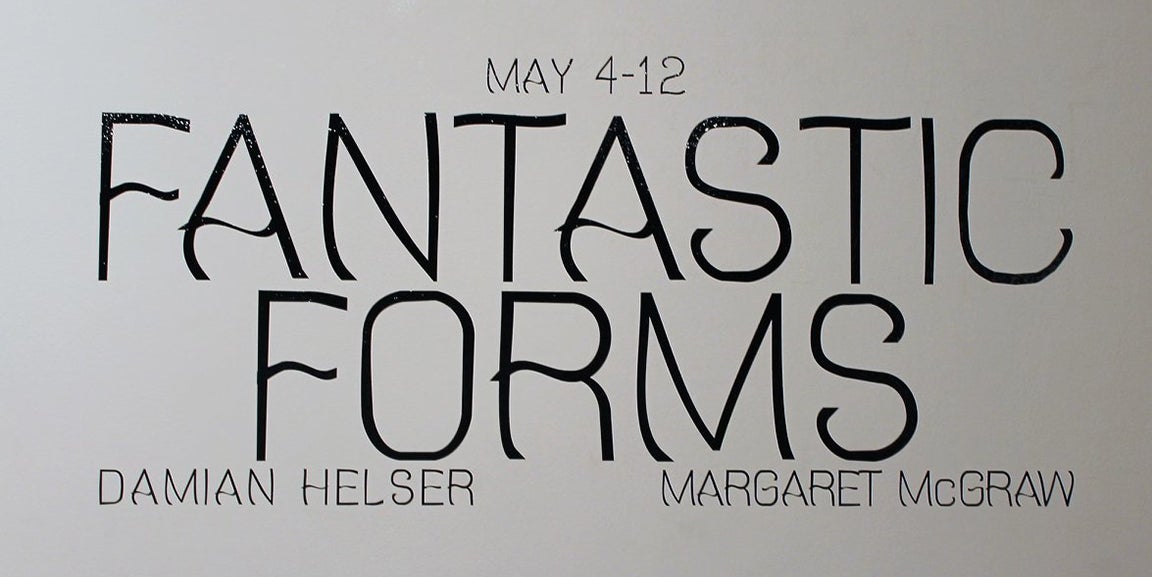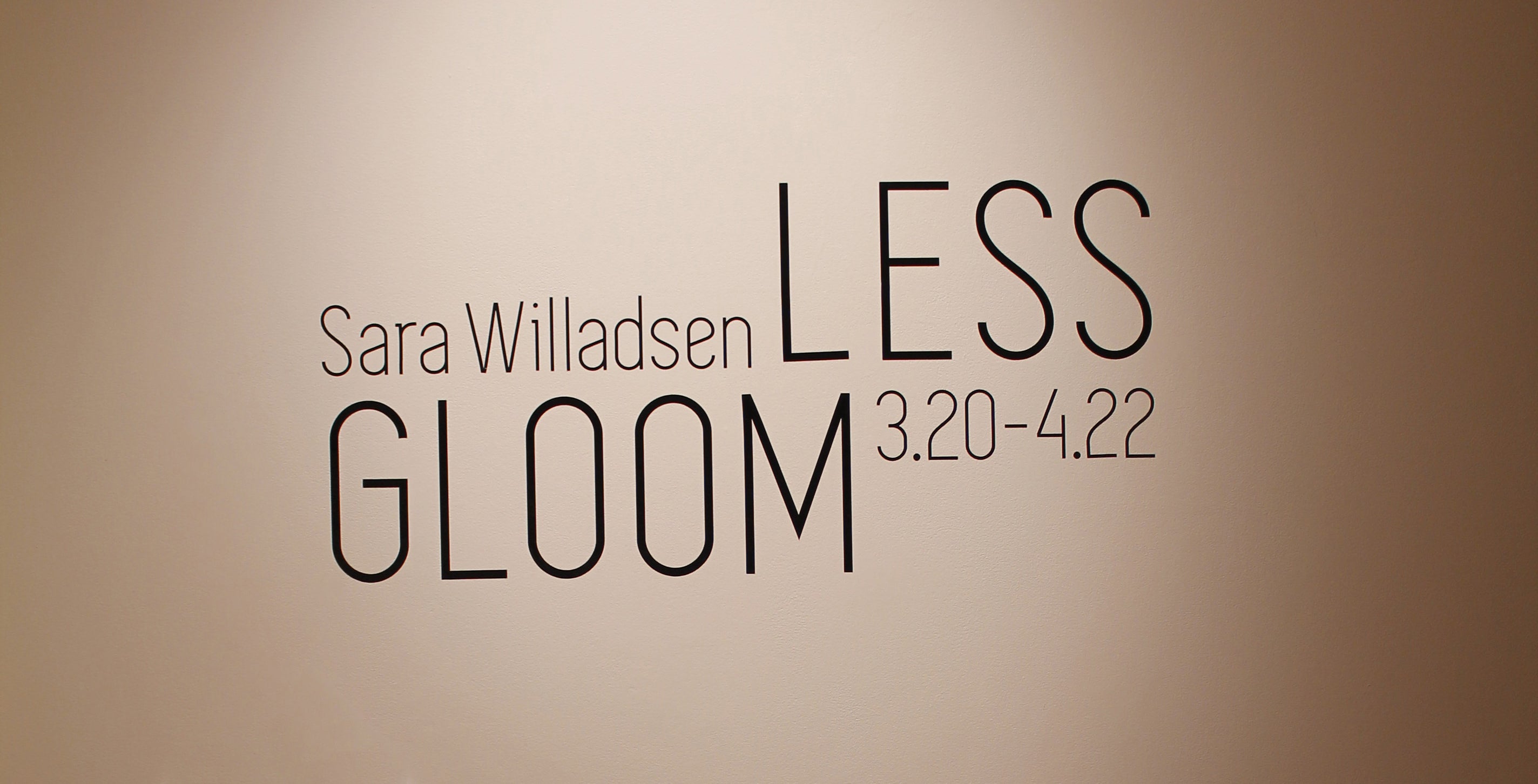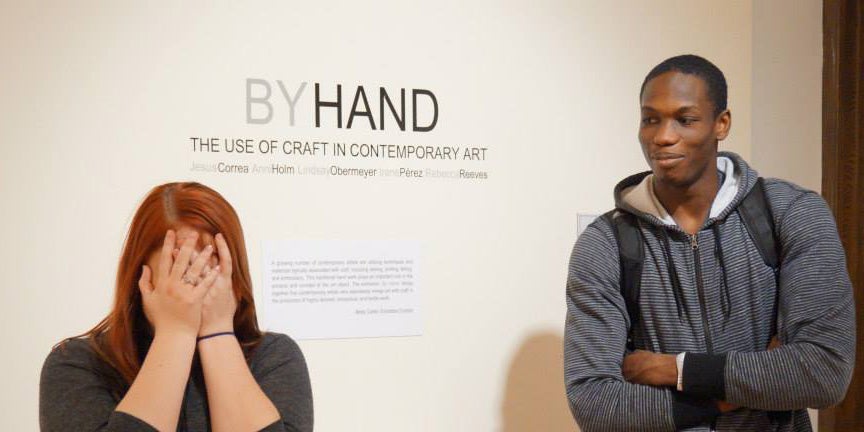Performing Arts

 Professor Timm Adams Named Artistic Director of Camerata Emanon
Professor Timm Adams Named Artistic Director of Camerata Emanon
05/15/2025 8:54 am
Congratulations to RU’s own Timm Adams on being named the Artistic Director of Camerata Emanon! Timm will continue in his role of Associate Professor of Music at RU while leading the Camerata Emanon Singers.
From Camerata Emanon on Facebook: The board of Camerata Emanon is pleased to announce the appointment of its new artistic director, following the outstanding ten-year leadership of Dr. Timothy Anderson. The new director will be Timm Adams, Associate Professor of Music at Rockford University.
Timm brings years of experience in theater, musical theater, vocal instruction, and choral conducting to his new role, having directed the renowned Chicago Chamber Choir from 2000-2015 as well as choirs at Rockford University and other institutions.
Since its founding in 1999, The Camerata Emanon Singers has brought together talented individuals from the greater Rockford region with a passion for singing. As a community chamber choir dedicated to singing choral compositions requiring little or no accompaniment, Camerata Emanon has presented music from a variety of styles and periods at its concerts. It has also been blessed with former artistic directors, founder Rulee Stallmann (1999-2015) and Tim Anderson (2015-2025).
“After singing with the fine musicians of Camerata Emanon for five years, I’m looking forward to continuing Tim Anderson’s excellent work,” said new artistic director Timm Adams. “I’m fascinated by the ability of the human voice to move an audience. I’m also interested in the storytelling of choral programming. And I’m committed to the community role of choirs, for both the singers and the community at large. I look forward to developing further the chorus’s beautiful sound and chamber repertoire to complement the already rich musical scene in Rockford. Thank you for this opportunity.”
Photo from the 2024 RUPA trip to perform at the Edinburgh Festival Fringe in Scotland.
 The Making of “The Addams Thread”
The Making of “The Addams Thread”
11/15/2023 3:17 pm
By Sara Myers-Hogshead, Digital Media & Communications Specialist
Learning about an institution’s history often requires research. To make Rockford University’s history more engaging without reading a book or two, RU’s Performing Arts professor Deborah Mogford decided to produce a dramatization of its most famous class, just in time for one of the University’s busiest weekends.
During homecoming weekend, Oct. 13, 2023, Rockford University’s Performing Arts department performed Mogford’s production, “The Addams Thread,” focusing on the university’s most well-known classes.
“It’s lovely to read a novel, I’m a big reader, but people remember stories they see visually,” Mogford said. “That’s the beauty of drama.”
Mogford wrote and directed the play as a dedication to the “Glorious Seventeen,” the seventeen women who graduated from Rockford Female Seminary in 1881, which includes notable Alumni Jane Addams, a Nobel Peace Prize Winner and the founder of Chicago’s Hull House. Mogford added that she also dedicates this play to all RU alumni.
“Graduates of this university can attest to RU’s dedication to advancing knowledge for the students while fostering life-long intellectual curiosity,” Mogford said in the director’s note in the production’s program. “They can also speak to the school’s commitment to instilling in the student population a desire to seek a life of purpose, service, and leadership to the community they choose to inhabit.”
To create this production, Mogford said she researched Jane Addams’s valedictorian speech where she discovered Addams’s nickname for her graduating class. This led Mogford to create a show that touched on how the “Glorious Seventeen” were always bonded and how Jane attending Rockford had the impact it did.
“I got to thinking that’s lovely and it’s 1893, four lovely women, all white,” Mogford said. “The school doesn’t look like that anymore. So, what is that legacy, and how does it look in 2023? So, I thought, I’ll then jump ahead 100 years.”
The play is split into two scenes at different times and places.
Scene I is set in the summertime in 1893 at Rockford College alumna Mrs. Jonathan McKnight or Aunt Katherine’s house. There, Aunt Katherine is joined by her niece Arabella Amato, her niece’s friend Cora Edwards, and her good friend and classmate from Rockford, Martha Gail. The scene is placed 12 years after graduation and four years after the Addams formed Hull House.
The second scene is set in the Spring of 2023 at Maddox Theatre, where five students are talking about going for a coffee run together when they run into a potential RU student.
“I want to be able to have this piece ready to go at any time,” Mogford said. “So, as students graduate then that part goes to someone else. It’s a piece that’s always ready to go whenever the school needs it for recruitment or historical reference.”
After taking the summer of 2023 to write the play, Mogford was ready in August for prep. Mogford put together the cast and crew and held a complete read-through of the production. She would meet periodically with the groups from both scenes. She added that the cast would rehearse on and off but the final push came 10 days before the show went on.
“I hope they bring it back for Charter Day or orientation,” she said. “And, when we have groups on campus who are looking at the school we can also do it then if we have plenty of notice.”
—-
THE ADDAMS THREAD
Performed Oct. 13, 2023
Written and Directed by Deborah Mogford
Lighting Designer: Eric Brockmeier
Costume Designer: Ryan Moller
Stage Manager: Jeremy Rogers
Technical Director: Beth Drog
SCENE I
TIME: Mid-June on a perfect summer afternoon, 1883
Place: The lush garden of Aunt Catherine’s House on Harlem Blvd. in Rockford, IL
CAST, in order of appearance
Martha Gail: Aubry Musfelt
Arabella (Bella) Amato: Lindsay Johnson
Aunt Catherine (Mrs. Jonathan McKnight): Emmarie Wilson
Cora Edwards (Mrs. George Edwards): Lucy Parlapiano
SCENE II
TIME: Late April on a perfect spring day, 2023
Place: Maddox Theatre
CAST, in order of appearance
Marie: Adara Barrera Medina
Jake: Robbie Strader
James: Carter Coryell
Allison: Keira Alejandro
Samantha: Kaleigh Ferguson
Will: Elijah Lowry
 Rockford University Performance Arts Department Steals the Spotlight
Rockford University Performance Arts Department Steals the Spotlight
08/17/2023 2:33 pm
A Thrilling Recap of Unforgettable Performances

by Lindsey Giardino
It’s always an exciting time within Rockford University’s performing arts program.
Each academic year, the department produces a collection of theater productions open to the campus community and general public. This past fall, those productions included a 1960s themed cabaret show directed by RU Performing Arts Professor Timm Adams entitled, “Good Vibrations: Songs of the 60s!”
Complementary tickets were sent to Rockford University alumni who graduated in the 1960s and 1970s, and many attended a performance.
Another performance, “These Shining Lives,” was directed by Professor Deborah Mogford in November 2022. The heart-wrenching play is based on the true story of Catherine Donahue and her friends who worked for the Radium Dial Company and how women’s lives were changed between 1922 and 1938 by the right to vote and new job opportunities.
In addition, Rockford University’s choirs and special guest Camerata Emanon put on a choral concert in November, performing “And the Angels Sang.”
The fall season came to a close with a dance performance, “Orchesis: New Beginnings,” co-directed by Performing Arts Department Chair and Technical Director Beth Drog and graduating senior Marissa Ott. Not only did this feature Rockford University dancers, but it also featured dancers from Rockford Dance Company, Evolve Dance Company, Auburn High School and South Beloit High School.
“Rockford University Performing Arts truly produces excellence in the realm of performing arts here in Rockford,” said Margaret McGraw, administrative and marketing assistant for the visual and performing arts program at RU. “The rigorous program provided by our hardworking faculty produces in our students the skills they need to progress in their artistic career.”
Although guided by faculty, each show is the collective hard work of every student in the program, McGraw said.
While there are many highlights of the overall program to call out, one pressing event is the retirement of Professor Jeff Hendry, who retired at the end of the spring semester after 41 years. He created the majority of the costumes seen on stage at Rockford University.
To purchase tickets to a future Rockford University production or to learn more about all the happenings, call 815-226-4100 or visit ticketor.com/rockforduniversity.

This story was originally published in the Spring/Summer 2023 issue of Catalyst.
 Farewell to the Needle and Thread
Farewell to the Needle and Thread
08/16/2023 11:53 am
Rockford University Costume Designer Takes Last Bow

By Aris Sherwood
Walk into the lobby of Maddox Theatre in the Clark Arts Center at Rockford University, and you will find mannequins dressed in costumes of shows past. Underneath them are the designers’ names on plaques. Newly retired professor of theater arts and costume designer, Jeff Hendry’s name is captured on many.
Hendry retired at the end of the 2023 spring semester after 41 years. During his time here, Hendry has worn many different hats due to his diverse background. He has directed shows and has even taught Rockford University theater history and Shakespeare courses.
Originally from Phoenix, Arizona, Hendry received his Bachelor of Fine Arts in Theater Production from the University of Arizona, and Master of Fine Arts in Costume Design from University of Massachusetts, Amherst.
When he left graduate school, Hendry said he was searching for jobs primarily in the Midwest. Rockford University was where he ended up and stayed.
“I kind of bounced around a lot,” he said.

Designer of Many Hats
“I have an odd skill set compared to most costume designers,” he said. “Most design people have a secondary emphasis in graduate school in another design area. I didn’t. I had directing as my secondary emphasis. I guess that’s always interested me.”
In the early 1990’s, the faculty from the theater department came together to create a musical theater major, Hendry said. Since then, Hendry has taught both performance and history/literature. He is now the only professor left of the program’s original creators.
“Professor Mogford likes to refer to me as a ‘Renaissance Man,’” he said. “I wear a lot of hats, and quite frankly, that’s part of the reason why I’ve stayed here for so long. If I had gone to a larger university, I’d end up in the costume shop and that’s all I’d be doing, because I wouldn’t have the opportunity to work in these other areas that I really enjoy.”
Besides teaching, costume designing, and directing, on top of his extensive freelancing career, Hendry said Rockford University has given him opportunities beyond what he ever expected. Back when the university was connected to Regents College in London, England, Hendry said he was sent to London to oversee and operate the program.
“Living in London for a year and a half totally changed my outlook on life,” he said.
When Rockford University applied for and received a grant from the American and Japanese Foundation of Education, three professors were chosen to work on a communications effort with 9 other schools in the country and travel to Japan for research of their choosing.
“I was researching Kabuki Theater and came back and produced a play in traditional Kabuki style, which was really exciting for me and the students. I could have never imagined doing that sort of thing when I came here”
For those future Rockford University students and next generation of costume designers who will not get to experience Jeff Hendry, the professor, he had one piece of advice:
“Don’t be afraid to take a risk. If any place, this is the place you can take a risk,” he said. “When I was starting here, my God, I made so many mistakes when I look back on it. But I learned from every single one of them, and it made me a better teacher and a better designer.”
This story was originally published in the Spring/Summer 2023 issue of Catalyst.
 An Oscar Wilde Classic Comes to Maddox Theatre this Month
An Oscar Wilde Classic Comes to Maddox Theatre this Month
02/18/2023 1:00 pm
by Sara Myers-Hogshead, Digital Media & Communications Specialist

The Rockford University Performing Arts department will kick of its season Feb. 23 with “The Importance of Being Earnest” — an Oscar Wilde classic directed by RU’s Deborah Mogford.
The production will start at 7:30 p.m. Friday, Feb. 24, in the Maddox Theatre at the Clark Arts Center, 5050 E. State St., Rockford. There will be additional showings at 7:30 p.m. Feb. 25 and 2 p.m. Sunday, Feb. 26 at the Maddox Theatre. Tickets can be purchased online, over the phone at (815) 226-4100 or through email: boxoffice@rockford.edu.
Oscar Wilde was an Irish author, poet and playwright. His play, “The Importance of Being Earnest” was released in 1895 and is his most popular comedy that is still being performed.
“It is a classic of 1895,” Mogford said. “It continues to be going around the world even today. We chose it because it’s a comedy of manners and it’s a good thing for students to have that particular genre.”
The main cast includes: Josh Ponsones, Andrew Ashley, Jake Rogers, Jessica Rathbun, Emmarie Wilson, and Kade De Angioletti.
Many of the actors traveled far from home to attend RU’s Performing Arts program. Ponsones is from San Diego, California; Wilson is from Fort Worth, Texas; De Angioletti from Leesburg, Virginia; and both Rogers and Rathbun are from Aurora, Colorado.
The actors, most who are seniors this year, said they’ve had fun learning the material, as well as getting to know each other.
For both Wilson and Ashley, performing with a smaller cast has been very impactful. They’re bonding and have a greater appreciation for the characters’ individual stories.
For Rathbun, the smaller cast allows everyone more room since they take up the space with their “characterizations and presence.”
Wilde’s writing is still relevant today, De Angioletti said.
“That humor still transcends and people still find the jokes funny,” De Angioletti said, adding that the cast laughed during the read through.
Rathbun, who plays Miss Prism, has enjoyed the balancing act of doing a small show but also looks forward to their next production of Urinetown, a larger musical production.
Diving into Character
For Ponsones, one thing he said he took away from his character, and the production in general, was to not let so much of his own personality into the character.
“As somebody who is very into large gestures and always uses their hands a lot,” Ponsones said, “I have to keep my hands completely in place, all the time. I’ve learned you don’t need to use your hands so much when you talk.”
Roger plays John and has learned to tap into the duality of his character. He said he’s learned to let his guard down, while still keeping his composure.
“That has been a balance I haven’t really seen before,” he said.
The cast is ultimately looking forward to bringing their characters to life in front of a live audience.
“I’m sure since we’re having so much fun, it’ll be fun for the audience too,” Ashley said.
CAST:
- John Worthing, J.P: Jake Rogers
- Algernon Moncrieff: Andrew Ashley
- Canon Chasuble, D. D.: Josh Ponsones
- Lady Bracknall: Kayleigh Ferguson
- Miss Prism: Jessica Rathbun
- Gwendolen Fairfax: Emmarie Wilson
- Cecily Cardew: Kade De Angioletti
- Lane: Zach Furmanek
- Merriman: Robert Strader
CREW:
- Director: Deborah Mogford
- Stage Manager: Kaitlyn Tesdroff
- Assistant Stage Managers: Analiese Garcia, Caitlin Dennis
- Costume Shop Manager: Karly Osborne
- Assistant Technical Director: Andrew Harth
- Master Electrician: Kaitlyn Tesdroff
- Aster Electrician: Lindsay Johnson
- Scene Painter: Karah Nelson
- Sound Design/Sound Operator: Isaac Urbik
- Projection Operator: Sara Goodger
- Properties Master: Zachary Furmanek
- Assistant Properties: Adara Barrera Medina
- Wardrobe: Aubry Musfelt
- House Crew Chief/House Manager: Miami Roby
- House Crew: Sara Goodger, Karah Nelson
- Box Office Manager/ Program: Margaret McGraw
- Box Office Staff: Nakeyia Hunter, Yulissa Mancillas, Guadalupe Moreno
- Costume Shop: Keira Alejandro, Aiden Foreman, Emmarie Wilson
- Scene Shop: Adara Barrera Medina, Caitlin Dennis, Zachary Furmanek, Analiese Garcia, Sara Goodger, Lindsay Johnson, Karah Nelson, Kaitlyn Tesdorff, Isaac Urbik
- Scenic & Lighting Designer: Donald Fox
- Costume Designer: Jeff Hendry
- Technical Director: Beth Drog
- Archive Photographer: Ted Johnson
 Andrew Pollock’s Rockford University Education was the Perfect Recipe for his Success
Andrew Pollock’s Rockford University Education was the Perfect Recipe for his Success
09/22/2020 5:18 pm
 Based in Los Angeles, Andrew works as a chef and kitchen manager for Tasty, an online food network and recipe database. It might seem like a distant career for this former musical theater major, but the skills he learned in Rockford are helping him thrive today.
Based in Los Angeles, Andrew works as a chef and kitchen manager for Tasty, an online food network and recipe database. It might seem like a distant career for this former musical theater major, but the skills he learned in Rockford are helping him thrive today.
“It’s prepared me to work in a creative environment,” Andrew said. “A lot of my job is to take a baseline idea and move it into a final product.”
Take, for example, the time Andrew was charged with putting together a set. Because of his stage production class at Rockford University, he knew exactly what to do and how to function in a production setting.

Likewise, Andrew’s training in front of an audience helped him feel more comfortable speaking on camera or to celebrities – both of which are part of his job today.
“Rockford University helped me become a better communicator, a better on-camera personality, and gave me better public speaking skills,” he said.
Andrew first came to Rockford University in 2007, attracted by the small campus and family atmosphere. He was impressed that teachers truly seemed invested in his future career.
“It was the campus I was looking for,” Andrew said. “I like close-knit communities. This was close to Chicago, which was great for auditions, but it also had a family-like atmosphere.”
For several years after graduating in 2011, Andrew worked in theater – both in Illinois and then in New York City. But he also began restaurant work to make ends meet while in New York, and soon found himself with a second passion.
 “It got to the point where I wasn’t really auditioning because I was busy trying to perfect a French omelette,” he said.
“It got to the point where I wasn’t really auditioning because I was busy trying to perfect a French omelette,” he said.
So when Andrew decided to move to Los Angeles with his wife, also an actress, it seemed the perfect time to pursue culinary school. He found the perfect blend of his skills at Tasty, where he creates recipes and food videos.
Often, Andrew works as culinary support for the producers who film the videos. But with the COVID-19 pandemic this year, more video production began happening from home, and Andrew found himself tapping into his theater skills once again.
Today, he is both developing recipes and appearing on camera to demonstrate them. It’s a blend of passions that Andrew didn’t see coming but is grateful to have prepared for.
“The kind of mentorship I got from each Rockford University professor in the theater department gave me the confidence to be someone who could go out and be successful,” Andrew said. “It made me a stronger professional and a better person.”
 Performing Arts students rock the stage with “All Shook Up” for their last performance of the semester
Performing Arts students rock the stage with “All Shook Up” for their last performance of the semester
04/19/2019 3:19 pm
 Rockford University’s spring 2019 Forum Series concludes with the production of the musical comedy All Shook Up. The musical runs Thurs. – Sat., April 25- 27 at 7:30 PM and Sun., April 28 at 2 PM in Rockford University’s Maddox Theatre, Clark Art Center. This Broadway preformed musical is directed by alumnus Kyle Donahue (2003) and built around a number of songs made famous by Elvis Presley, such as classics like “Heartbreak Hotel,” “Love Me Tender,” “Don’t Be Cruel,” and “Can’t Help Falling in Love”.
Rockford University’s spring 2019 Forum Series concludes with the production of the musical comedy All Shook Up. The musical runs Thurs. – Sat., April 25- 27 at 7:30 PM and Sun., April 28 at 2 PM in Rockford University’s Maddox Theatre, Clark Art Center. This Broadway preformed musical is directed by alumnus Kyle Donahue (2003) and built around a number of songs made famous by Elvis Presley, such as classics like “Heartbreak Hotel,” “Love Me Tender,” “Don’t Be Cruel,” and “Can’t Help Falling in Love”.
The music of Elvis comes alive in this musical set in 1955, somewhere in Middle America, where one girl’s dream and a surprise visit from a guitar-playing young man changes everything and everyone he meets, as he helps a small town to discover the magic of romance and the power of rock & roll. This lip-curling musical fantasy will have you jumpin’ out of your blue suede shoes. Kyle Donahue has directed, choreographed and performed around the world on regional theatre, theme park and cruise ship stages and is an alumni of the BFA Musical Theatre Performance program at Rockford University. In Rockford, Kyle performed at New American Theatre, with Rockford Dance Company and the Without Shoes Modern Dance Company.
Maddox Theatre is located in the Clark Arts Center, 5050 East State Street, Rockford. Clark Arts is accessible. Tickets are required and single ticket admission is $12 for adults and seniors age 55 and up, and $9 for students. Contact the Box Office for tickets at boxoffice@rockford.edu or 815-226-4100 to purchase tickets.

Rockford University’s Performing Arts department presents “Five Women Wearing the Same Dress” written by Academy Award winner Alan Ball and directed by Professor Deborah Mogford. The show runs Thursday, November 15- Saturday, November 17, 7:30 p.m. and Sunday, November 18, 2 p.m. in Rockford University’s Clark Arts Center, Cheek Theatre. The Clark Arts Center is accessible.
This unique, six character cast, play first premiered 25 years ago at New York’s Manhattan Class Company. The comedy play provides an irreverent and funny look at the intricacies of friendship and the power of similar dressing. It is summer and five women wearing identical unique bridesmaids dresses have survived the elaborate wedding ceremony to find themselves at the ostentatious wedding reception being held on the estate of the bride. There is only so much they can take, so they seek sanctuary in an upstairs bedroom. Each woman has her own reason for avoiding the proceedings below. As the afternoon wears on these five very different women are surprised to discover a common bond. This wickedly funny and touching celebration of life explores the nature of sisterhood and the ever-present question about the behavior of men. You can’t live with them, but can you live without them?
This production is for mature audiences only. Tickets are required and seating is limited. To reserve tickets, contact the Box Office at boxoffice@rockford.edu. The complete list of this seasons productions is available on the University’s website at www.rockford.edu/artslectures/performingarts/.
Past Art Gallery Exhibitions
05/30/2018 1:59 pm
Box Office
11/11/2016 11:07 am
Contact Information
BoxOffice@rockford.edu
815-226-4100
Clark Arts Center, Main Lobby
Hours: 2-5 p.m. Monday through Friday
Copyright © 2025 Rockford University, all rights reserved



















































